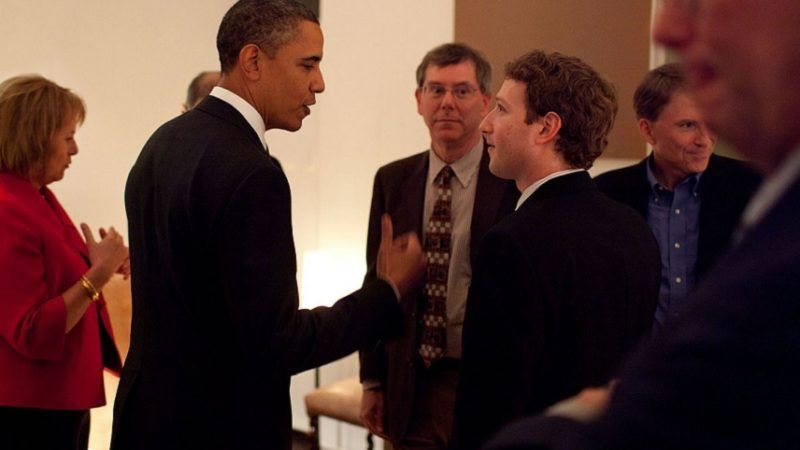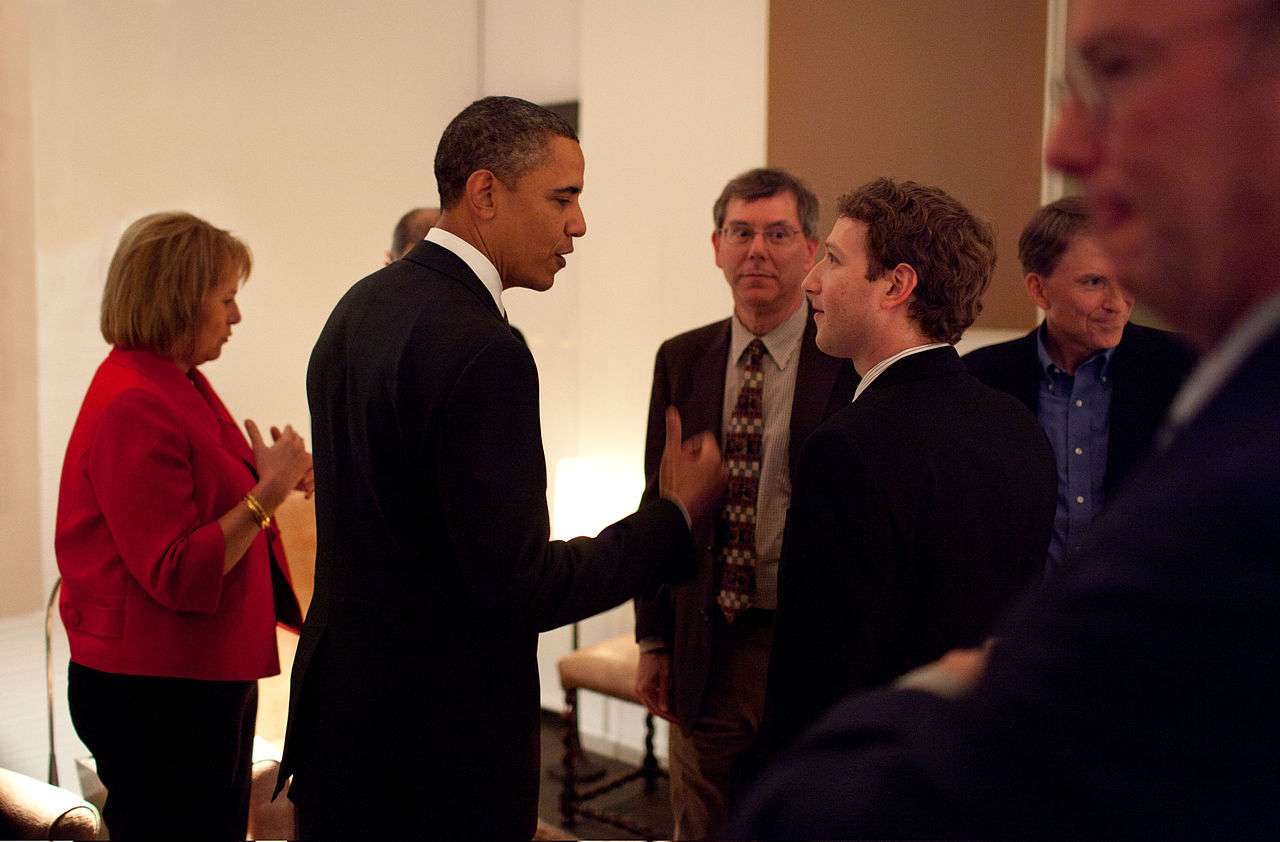Mark Zuckerberg Is Calling for Regulation of Social Media To Lock in Facebook's Position
Break out your public-choice primers, folks.


So now Mark Zuckerberg, the founder and head honcho at Facebook, is going all in on government regulation.
"The question," he told Wired's Nicholas Thompson, "isn't 'Should there be regulation or shouldn't there be?' It's 'How do you do it?'" On CNN, he said, "I actually am not sure we shouldn't be regulated. I think in general technology is an increasingly important trend in the world. I think the question is more what is the right regulation rather than 'yes or no should we be regulated?'"
What gives? I'd like to suggest that Zuckerberg's response has little or nothing to do with civic-mindedness in the wake of ridiculously overblown panics over Russian trolls buying campaign ads showing Jesus wrestling Satan, or still-cresting fears that Cambridge Analytica used Facebook data to deny Hillary Clinton her rightful role as first woman president.
Rather, Zuckerberg is using these incidents as a way to cement Facebook's centrality in a radically volatile social-media landscape. It was only a few weeks ago, after all, that we were treated to a spate of stories about how Facebook was losing younger users by the millions. From a representative account at Inc.:
Last year alone, the social network lost more than 1.4 million users in the 12 to 17-year old demographic, according to new report from research firm eMarketer. That represents a decline of nearly 10 percent, or roughly three times what analysts had predicted. Notably, 2017 was the first time that analysts expected the company to see a drop in usage for any age group. Overall, Facebook lost 2.8 million U.S. users under the age of 25, the data found….
2018 isn't shaping up to look any better. EMarketer predicts another 5.6 percent decline in users between 12 and 17 years old, and a 5.8 percent decline for those between 18 and 24. That likely has executives worried about the long-term dominance of the social media platform.
Only the paranoid survive in Silicon Valley, right? Zuckerberg may be young (he's just 33) but he's old enough to remember MySpace and Friendster. And he's certainly aware that Facebook's "pivot to video," brief emphasis on live events, and push for "insta-articles" didn't work out well for his company, publishers, or individual users. He hangs around with people who don't just remember AOL and Netscape but also invested in them. The history of business is a cemetery of whales, of "too big to fail" juggernauts who are barely remembered these days. The supermarket chain A&P once had bigger market share in its sector than Walmart does today. It revolutionized the buying and selling of groceries and has passed away, little-remembered and little-missed. Only 60 companies that appeared in the 1955 version of the Fortune 500 were still there in last year's list, economist Mark Perry reminds us. More important for the current conversation (emphasis in original):
At the current churn rate, about half of today's S&P 500 firms will be replaced over the next 10 years as "we enter a period of heightened volatility for leading companies across a range of industries, with the next ten years shaping up to be the most potentially turbulent in modern history" according to Innosight.
Go ask your kids if they're still playing Minecraft and get back to me. Zuckerberg surely understands all this better than most of us. And he's surrounded by folks who, despite libertarian bona fides, recognize a corollary too: Regulation often isn't forced upon leading firms in an industry but welcomed and even demanded by them, as a means to fix the market when they're in a particularly good position. This is part of the insight that guides the public-choice school of political economy, but it's not just libertarians such as Nobel laureate James Buchanan who think this way. Forty years ago, the socialist historian Gabriel Kolko rewrote the received interpretation of the Progressive Era along the same lines. By looking at how regulation unfolded during the Gilded Age, Kolko concluded that railroad tycoons and other robber barons actively sought out regulatory regimes that would keep them at the table. As Roy Childs, writing in Reason in 1971, summarized it: "Facing falling profits and diffusion of economic power, these businessmen then turned to the state to regulate the economy on their behalf."
More recently, we saw a variation on this rent-seeking theme with Uber. The disruptive company had barely stolen market share from taxi cabs in American cities before it started lobbying for rules that would benefit it while limiting new competition. As the Mercatus Center's Matt Mitchell told Reason in 2014, "They sort of stepped inside this regulatory velvet rope and then put it up right behind them." In the autonomous-vehicle race, Uber and other ride-sharing companies are already pushing for a ban on individuals owning their own self-driving cars.
So goes Facebook. By not simply relenting to regulation but actively embracing it and, more important, shaping it to his company's maximum benefit, Zuckerberg might just make sure that Facebook sticks around far longer than it would otherwise. In the parlance of historian Burton W. Folsom, the "market entrepreneur," who makes a fortune by providing a new or improved service at a great price, almost inevitably evolves into the "political entrepreneur," who uses regulation and other connections to stay on top. This predictable but dispiriting two-step may well be the greatest challenge to libertarian economics. It certainly is one of the toughest problems to fix.


Show Comments (74)